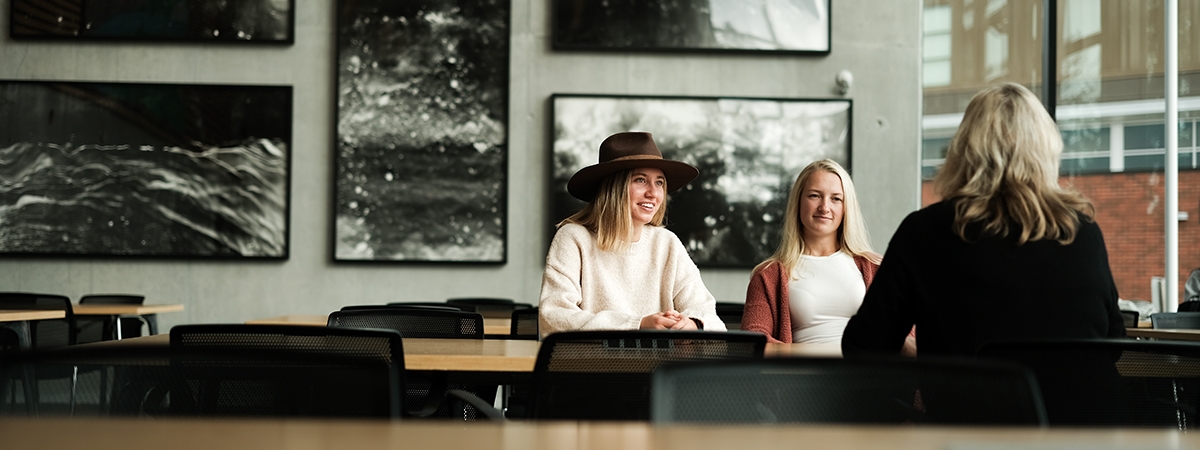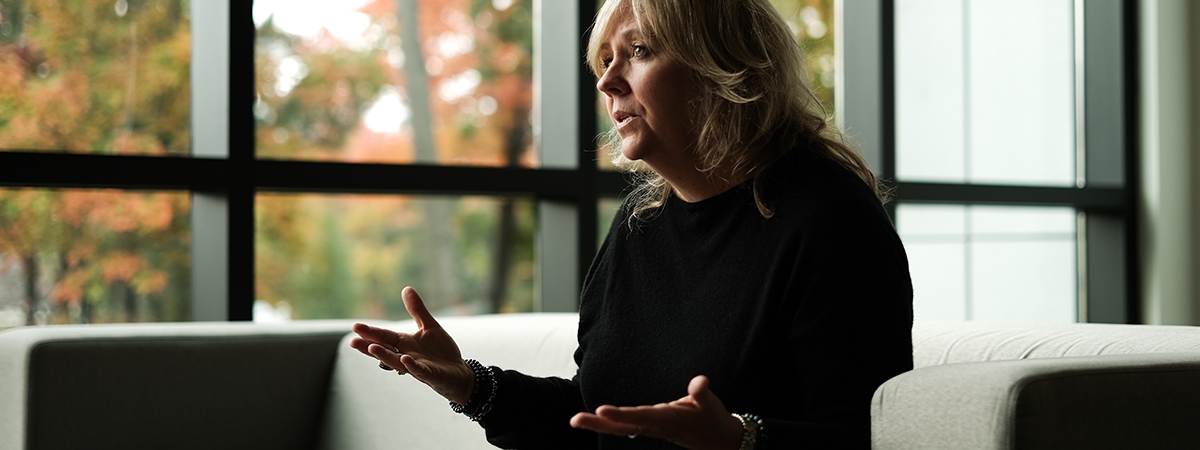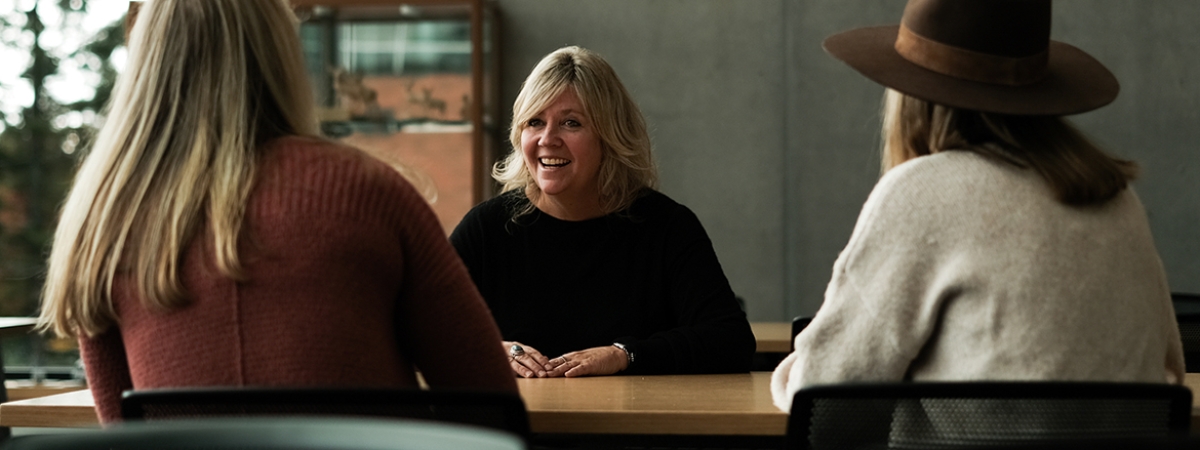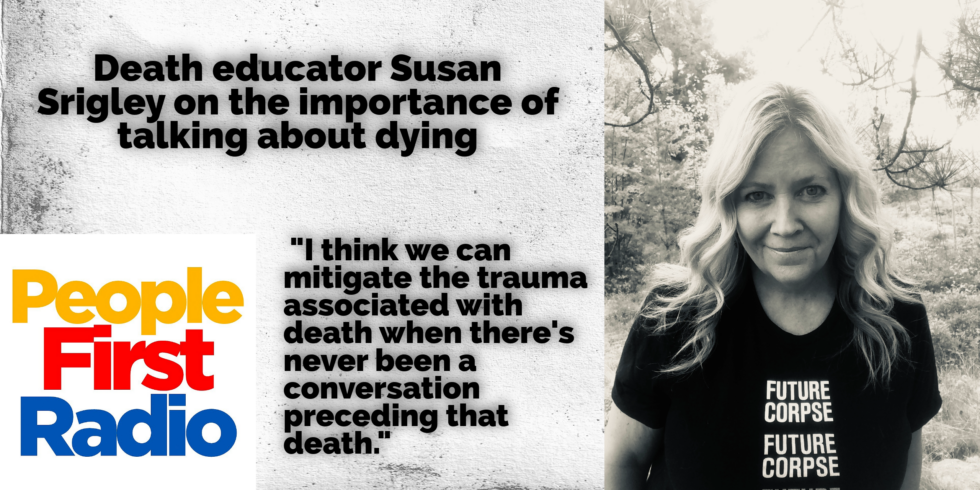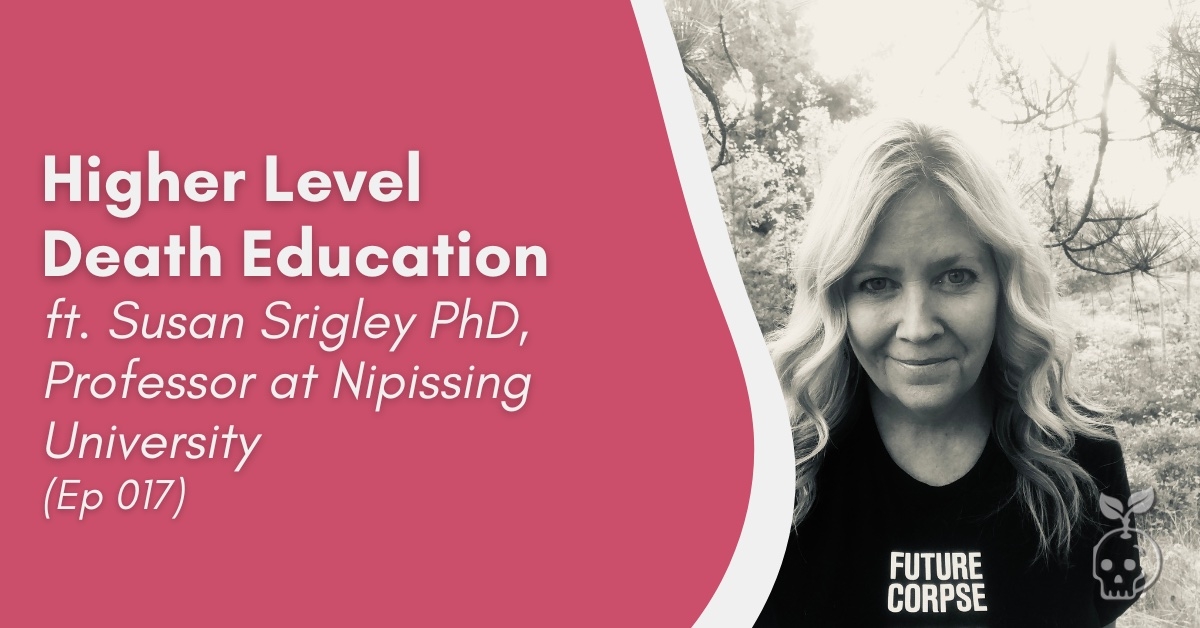Welcome to the page of Dr. Susan Srigley’s “Death Ambassadors”
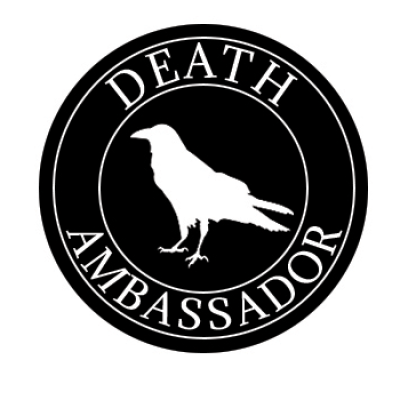
Prof. Srigley has been teaching death studies courses since her arrival at Nipissing University in 2005. She is a palliative care volunteer, mentor and advocate, a trained death doula and passionate about death education at the postsecondary level. When students take one of Prof. Srigley’s death courses, she tells them that they can now be a “Death Ambassador,” which means that their death awareness and education will help to change the conversations we have about death and dying in our culture.
Our cultural silence around death has detrimental effects on young people, and one of the overwhelming realities that Prof. Srigley’s students describe is their experience of profound death anxiety, primarily because there is no place for them to talk openly about death and express their fears. And yet the more her students have the space and freedom to think about death, voice their fears, wonder about it, and ask their questions, Prof. Srigley’s students experience a considerable diminishment of their anxiety.
Through her courses, her students’ participation in the International Death Festival, Lifting the Lid, and her work in the community with palliative care and hospice, Dr. Srigley hopes that she and her death ambassadors can cultivate a healthier relationship with death and dying.
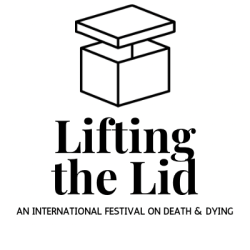
Lifting the Lid Death Festival
November 17-19, 2023
A free, international festival that lifts the lid on everything death and dying through conversations, interactive events, workshops, art and craft sessions, live music, poetry and performance and much, much more.
Click here to view the event poster »
Click here for more information or to register »
Videos
Podcasts
Death educator and Nipissing University professor Susan Srigley starts her semesters off by having students reflect on their personal experiences with death.
"The majority of those assignments tell a story of students who have not been supported around death, have not been prepared for death, and largely their experience is one of isolation and silence," she said.
Srigley said students tell her that being able to openly discuss death helps them better process it.
Being able to write about it and talk about it, makes them feel less anxious."
Srigley spoke with People First Radio about her work educating students, and why she feels its important we talk more about death.
Susan Srigley, Ph.D., is a professor of Religions and Cultures at Nipissing University where she teaches courses on death, dying and spirituality. Susan is a death doula, and has been a palliative care volunteer for the past 20 years. She is an advocate for death education and mentors new palliative care volunteers and offers workshops at her local hospice. In this interview with April Neault, Susan talks about her experiences as an end-of-life companion and about society’s fearsome attitude towards death – a process as natural, though far less celebrated, as birth – among other things.
Your favourite duo of death is back for season three! After some super exciting Philotimo Life updates (including news on a new episode schedule, and Philotimo corporate grief coaching), you'll hear from Dr. Susan Srigley. Susan is a Professor of Religions and Cultures at Nipissing University, Ontario, Canada. In this episode, you'll explore the need for higher-level death education and...a death cake cafe?
Related Courses at Nipissing University
RLCT 2017: Death & Immortality
In this course we study different cultural and religious ideas surrounding death, dying and immortality. We focus on the contemporary Death Positive movement, near death experiences, funerals, death rituals, Mexico’s dia de los Muertos (day of the dead), ideas about the afterlife, and Buddhist teachings and practices related to death and dying.
RLCT 2066: Death, Dying and Spirituality
This course introduces students to the spiritual dimensions of palliative care with focused attention to social justice issues for the dying. We explore how the medical model, technology, cultural death denial and other barriers such as racism, sexism, ageism, ableism, and homophobia impact good end-of-life care.

